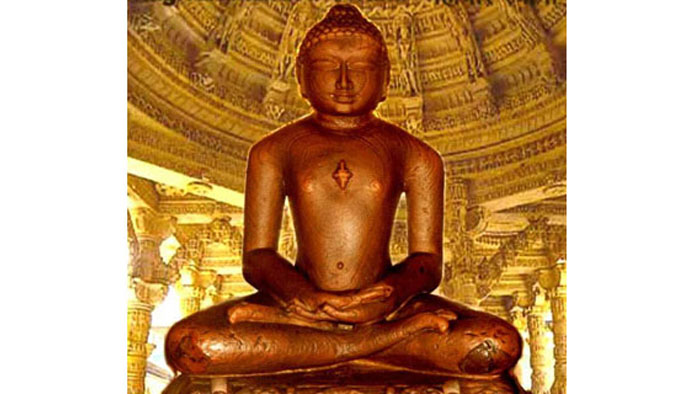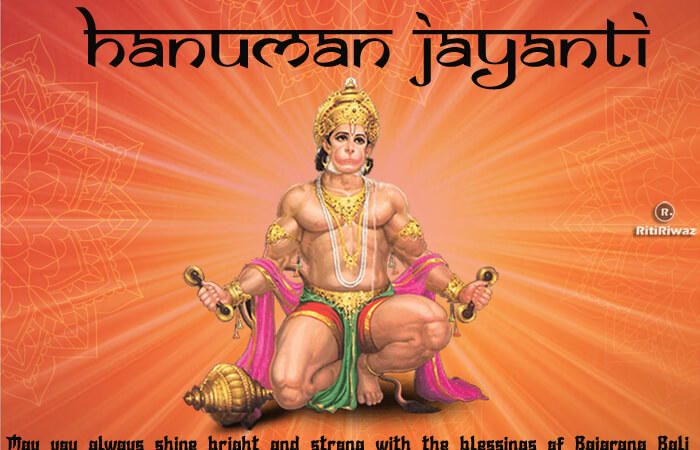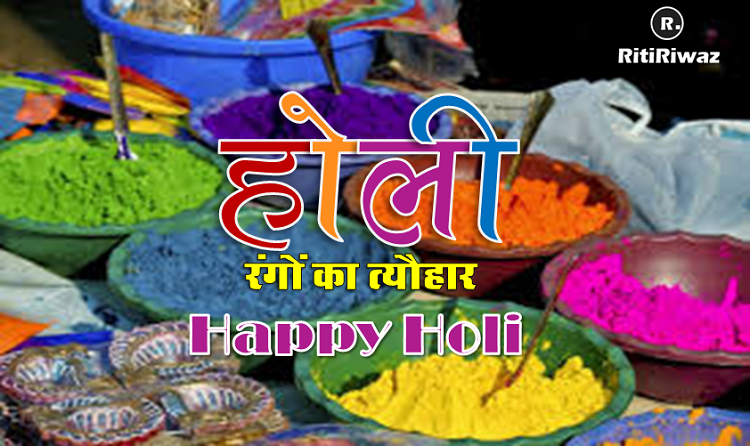Mahavir Jayanti | Bhagwan Mahavir

Although many are aware of the Buddha or the deities of Hinduism, few of us know anything about Bhagwan Mahavir (599-527 BCE), whose birth the Jain community around the world will celebrate as Mahavir Jayanti on Thursday, 10th April, 2025.
This celebration is known as Mahavir Jayanti and is a National Holiday in India. Jainism, along with Hinduism and Buddhism, is the three primary spiritual traditions of India. The archeological evidence indicates that although Mahavir was a contemporary of the Buddha, Jainism predated Mahavir by several thousand years and, therefore, is one of the oldest religions in India and in the world.
Mahavir is the last in a line of what the Jains call “Tirthankaras,” which literally means “maker of a ford” and refers to a human being who achieves omniscience and then teaches the path to liberation to others, thereby establishing a ford across the river of rebirth.
A Tirthankara is also referred to as a “Jina,” which means “spiritual victor,” or as an “Arihant,” which means “destroyer of enemies.” A Jina or Arihant is a victor or destroyer in that he or she has conquered inner emotions and passions and has complete equanimity that is characterized by an absence of attachment and aversion. Mahavir was a social revolutionary.
He rejected the caste system and the sexism that pervaded the society of his time (and that unfortunately persists) and promoted a radical social justice movement based on complete equality and equal inherent value. He did not limit this revolution to humans and was the first historical figure to regard all nonhuman animals as full members of the moral community. He was also the first historical figure to articulate the view that the planet itself, including air, water, and earth, consists of living systems.
Mahavir was, indeed, the first ecologist. The notion of revolution is often connected with violence, particularly in modern times. The central feature of Mahavir’s revolution, however, was Ahimsa, or nonviolence. Mahavir provided the most expansive concept of Ahimsa that the world has ever known not only by extending this notion to include all living beings, but by making clear that violence was not simply a matter of what we did, but what we thought and spoke.
It takes a million rebirths, to be lucky enough to be born a Jain. More than any other religion, Jainism believes implicitly in the law of karma. As you do, so shall you be done by. The lack of knowledge about one’s actions – a child stamping on an ant, for instance, does not absolve you. Positive, beneficial actions reap their own benefits. Negative hurt and pain-causing ones have their own reactions. One does not cancel out the other; each has an impact on what will happen to you.
The worst karmic defilement of the soul takes place when one causes hurt to any other creature. Mahavir’s words – “you are that which you intend to hit, injure, insult, torment, persecute, torture, enslave or kill.” Jain Dharma sees the whole universe as a great cosmic mechanism and humans as part of that mechanism must conduct themselves in harmony and rhythm with it.
Anything said or done in this world is echoed back with the same intensity. One could even say that the global ecological crisis that is threatening the entire human race is the consequence of echoing back our own negative thoughts, words, and actions.
Each being is a vital thread in another’s life tapestry and our lives are woven together for a reason — to survive and be happy. Everything works according to its nature. But humans live out of sync with the mechanism when we go against our qualities of love, kindness, and friendship for all living beings. When we forget how so many invisible lives have made our single day livable and comfortable then we imperil our own lives. If we make the right choices, we will get the right consequences.
Lord Mahavir says:
“One who neglects or disregards the existence of earth, water, fire, air, vegetation, and all other lives Disregards his own existence Which is entwined with them.” The best way to see that negative actions are kept to a minimum is to think through your actions and see if they are necessary to your existence. If you understand that product of him such as each leather shoe, leather wallet, steak, or diamond will cost you several more rebirths in very difficult conditions, would you, do it? Ahimsa means non-injury.
Ahimsa parmo dharmah
Jains consider nonviolence to be the most essential duty for everyone (Ahimsa parmo dharmaḥ,). It is an indispensable condition for liberation from the cycle of reincarnation, the goal of Jainism. According to Jainism every act by which a person directly or indirectly supports killing or injury is violence (Himsa), which creates harmful karma. The aim of ahimsa is to prevent the accumulation of such karma.
Jains share this goal with Hindus and Buddhists, but their approach is particularly comprehensive. Their scrupulous and thorough way of applying nonviolence to everyday activities and food shapes their lives and is the most significant hallmark of Jain identity. The perfect Jain goes out of his/her way so as not to hurt even small insects and other tiny animals because the harm caused by carelessness is as reprehensible as harm caused by deliberate action.
Jain vegetarianism is the best way to lessen evil. It is not just a matter of not eating meat. It is eating less, eating your last meal before sunset, eating while sharing, eating that which is in season and local. This discipline and thoughtfulness about food should extend to all areas of one’s life. To me it means the training of the body and mind to appreciate everything – want nothing.
An ideal Jain would live on fruit and those vegetables that are taken from a plant without killing it – peas, tomatoes for instance, or vegetables that come only for a short season. Rice and wheat are both fruit that comes at the end of the plant’s cycle. In the instructions for preventing unnecessary violence against plants, are injunctions against root vegetables such as potatoes, onions, roots, and tubers, because tiny life forms are injured when the plant is pulled up and because the bulb is seen as a living being, as it can sprout. Honey is forbidden, as its collection is violence against bees.
Cooking or eating at night is discouraged because insects are attracted to the lamps or fire at night. Jains believe that animals, plants, human beings contain living souls. Each soul is of equal value and should be treated with respect and compassion. To injure any living being in one’s thought, speech or action constitutes violence or Himsa.
The monk is enjoined not to commit violence against any living being, including those with one sense (Ekendiryas) and that are immobile (Sthavar), such as plants or those organisms that have earth, water, fire, or air as bodies. Lay Jains are forbidden from Himsa against all mobile beings (Trasa), whether they have two (Dwindriya), three (Trindriya), four (Chaturindriya), or five (Panchendriya) senses (all mammals, birds, and fish). That is why Jains who drink milk are unacceptable.
The production of milk demands major violence on cows. None of them “give” milk to you. You put her in a stall to stand for 24 hours, impregnate her forcibly, and then take the milk away from her baby. Those Jains who buy milk from the market are even worse – because they take part in a system that involves the killing of the baby for leather, injecting the cow with painful hormones, and then killing her after her milk dries up. Any attempt to rationalize the drinking of milk is impossible.
The government of India itself says that the largest export of anything in the country is cow leather – rupees 27,000 crores worth. There is an inextricable relationship between the meat industry and dairy with as much suffering and death in a glass of milk as in a pound of steak. And the same goes for eggs. Even the person who keeps only one cow must keep that cow pregnant to get milk and this means a steady stream of calves. Whenever a calf is separated from its mother, there is tremendous suffering.
Similarly, the shearing of sheep for their wool involves unspeakable violence. The animals are frightened and their bodies are often cut and injured. Then they are slaughtered. Silk is produced by boiling silkworms alive. Some Jains argue that the use of animal products is traditional. But tradition cannot define human conduct. Jainism’s ethical principles are a matter of rational thought and careful consideration and cannot be lulled into complacency by tradition. There are Jains who say that we cannot live a perfect life so compromises must be made.
Jainism recognizes that we cannot avoid all violence, which is why laypersons are not required to eschew violence to immobile, one-sense organisms. But if the inability to avoid all Himsa means that dairy or wool can be used, which involves injury and death on five-sensed beings, then it must mean that flesh can be eaten as well. Some Jains claim that it is not certain that it is wrong to consume dairy or use wool. If we accept this reasoning, then we can be used to saying that there are no absolute moral truths – including the basic truth of Ahimsa and the prohibition against eating flesh. Some argue that it is inconvenient to be vegan. Then why be Jain? Considerations of convenience negate the religion itself.
Both Svetambara and Digambara are clear and in agreement that suffering and death imposed on mobile beings are unacceptable. Jainism takes Ahimsa very seriously. Abstinence from killing other animals must be observed by thought, word, and deed – Mana, Vachana, and Kaya. The discipline imposed is the purity of thought, word, and deed. It is not enough if one abstains from inflicting pain on other beings; If you approve of such conduct in others, that approval makes you responsible for the cruelty of killing practiced by others.
Do not kill nor kill through an agent nor approve the evil deed. Since Jains are basically businesspeople, look at the industry you run and evaluate the suffering it causes. Is it worth another thousand lives? Mahavir taught that “all breathing, existing, living, sentient creatures should not be slain, nor treated with violence, nor abused, nor tormented, nor driven away.” This is the only moral or spiritual principle that we need to know. If we live by this principle, we will be at peace with ourselves and the world will be at peace. Whatever our religious tradition may be, let us celebrate Mahavir Jayanti by recommitting ourselves to a simple but profound idea that all may embrace: Ahimsa.






